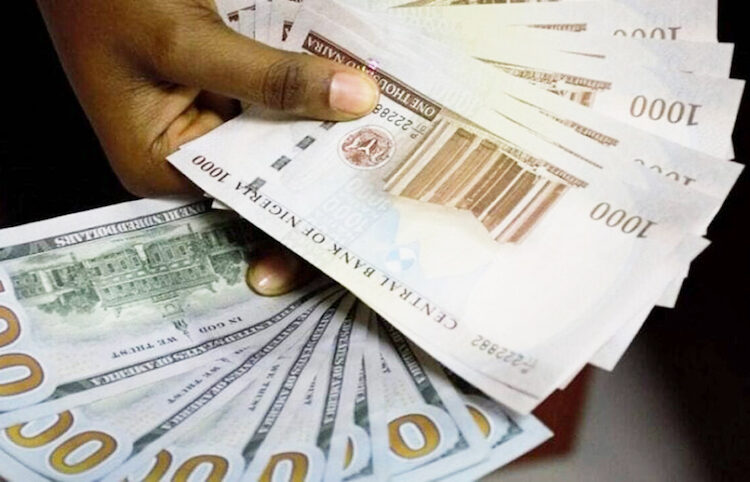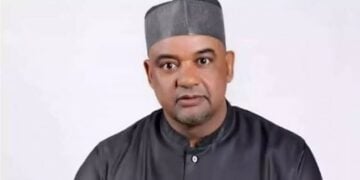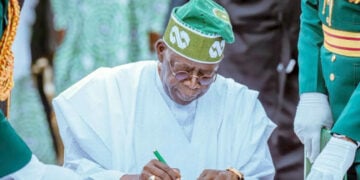The World Bank Group has stated that Nigeria would have entered a fiscal crisis worse than the current situation if the federal government had not taken the bold steps of removing fuel subsidies, floating the currency, and adjusting electricity tariffs, amongst other measures.
“Nigeria took the bold and courageous move to undertake difficult but critical reforms. This is against an already fragile economic position, high food and transport inflation, and other heightened uncertainties.
“If these reforms had not been implemented, Nigeria would have fallen into a serious fiscal crisis that would have made it difficult for the government to meet its obligations to citizens,” stated the World Bank country director for Nigeria, Ndiame Diop, yesterday in Abuja.
Diop made the statement at the launch of the Nigeria Development Update Report by the World Bank, entitled “Staying the Course: Progress Amid Pressing Challenges.”
The report highlights the need to sustain these policies while addressing structural issues to combat inflation and promote long-term investment, growth, and job creation.
While the reforms are still in their early stages, the report indicates that positive results from these reforms are beginning to show at the macroeconomic level.
For example, it said, output growth has remained modest overall but has inched higher through mid-2024 as oil sector output stabilised and some service activities have been robust.
The World Bank claimed that the fiscal position is also improving, with the federal government’s fiscal deficit narrowing to 4.4 per cent of GDP in the first half of 2024 from 6.2 per cent in the first half of 2023, helping to mitigate debt-related risks.
It stated that foreign exchange reserves—a buffer against external shocks—had risen from $32.9 billion at the end of 2023 to more than $38.8 billion by mid-October 2024. However, inflation remains high and increased again in September 2024, mainly due to the recent gasoline price rises and floods.
Given these promising results, the report argues that the new direction of macroeconomic policies should be sustained, including the Central Bank of Nigeria’s “appropriately” tight monetary policy stance.
The bank stated that complementing these measures with actions to address long-standing structural constraints will enable faster progress in the fight against inflation and spur the investment, growth, and jobs Nigeria urgently needs.
The report explains that previous distortionary and unsustainable policies hindered Nigeria from achieving its immense potential with monetary and foreign exchange policies increasingly opaque, distortive, and inconsistent with maintaining price stability, including multiple managed and overvalued official exchange rates.
The World Bank recalled that fiscal revenues were hampered in the past by one of the lowest tax-to-GDP ratios globally (3.2% of GDP in 2022), while a costly, regressive, and opaque gasoline subsidy absorbed a large share of the Federation’s oil revenues.
The Central Bank initiated major foreign exchange policy reforms that resulted in a unified, better-regulated, and market-reflective official exchange rate. The government has now moved towards market-based gasoline pricing to address the enormous fiscal cost of subsidised pricing.
Going forward, Diop stated that consolidating the improving fiscal outlook and scaling up support for the poorest households to cope with losses in purchasing power and hardships, while expanding opportunities for growth and productive jobs, especially for young Nigerians, is urgent and crucial.
The report offers key recommendations on policy priorities to build upon Nigeria’s macro-critical reforms and ignite growth and job creation. The recommendations include that Nigeria should maintain a tight monetary policy until a sustained disinflation path is achieved and continue improving policy effectiveness; ensure the exchange rate is unified and reflects market conditions while expanding the foreign exchange market; and reduce debt risks while creating room for development and poverty-focused spending, focusing on four key areas: continue removing the fuel subsidy and increasing transparency in the oil sector, increase non-oil revenues through better tax policies, cut government waste and direct spending to targeted poverty programmes, and adhere to realistic budgets to avoid unplanned expenditure.
“Recent reforms are starting to restore macroeconomic stability,” said Alex Sienaert, World Bank lead economist for Nigeria.
“GDP is projected to grow by 3.3 per cent in 2024, rising to an annual average of 3.7 per cent over 2025-2027; headline inflation is anticipated to peak at an average annual rate of 31.7 per cent in 2024, largely driven by the previous depreciation of the naira and increased gasoline prices. Yet, in the medium term, staying the course with implementing the current policy mix will reduce inflation, which is expected to fall to 14.3 per cent by 2027 in the base case.”
People are suffering, we risk being lynched – Bala Mohammed
Bauchi State Governor Bala Mohammed has raised concerns to the federal government, stating that state governors are now at risk of being lynched by the citizenry, most of whom are adversely affected by the government’s economic policies that have plunged more Nigerians into poverty.
The governor urged the central government to reconsider its economic policies, including the over 300 per cent hike in electricity tariffs, the removal of fuel subsidies, and the currency float that has seen the naira nosedive to $1/N1,700.
Senator Mohammed made these remarks yesterday during a panel discussion organised by the World Bank Nigeria to discuss the outcomes of the bank’s report on the Nigeria Development Update Report, entitled “Staying the Course: Progress Amid Pressing Challenges.”
READ ALSO: Cardoso, Buhari Mismanaged The Economy, Fix It
He said: “I want to say, with humility, that there is a lot of pain and hardship beyond the sub-nationals. We didn’t bring these policies. The forthcoming revenues are insufficient to address the infrastructure costs and develop or improve livelihoods.
“We are at risk of being lynched. They stay in Abuja and talk as if the reforms are working. This is part of something else.”
His position was dismissed by Wale Edun, the minister of finance and coordinating minister of the economy, and Olayemi Cardoso, the governor of the Central Bank of Nigeria, who claimed that the pains were temporary.
Edun stated that the removal of the gasoline subsidy and the currency float would free up revenue for the federal and subnational governments to fund their expenditures while Cardoso said that the free float of the naira and interest rate tightening are gradually restoring confidence in the nation’s financial and economic sectors.
He asserted that his administration’s decision to focus the CBN on its core mandate of price stability and building a resilient financial sector is yielding the desired results, with many investors now queuing to book space in Nigeria. He, however, failed to provide details on the number of investors who have been received since the beginning of his administration at the central bank last year
The Bauchi State governor insisted that there is acute hunger in the country and declared that the federal government’s policies on agriculture and manufacturing are not yielding the required outcomes.
He asked the federal government to stop being dogmatic and rigidly adhering to policy and academic principles.
“I find that we are too academic. We should return to the basics. Nigerians are not enjoying this regime.
“Across the board, not only the federal government but also the state and local governments are affected. Therefore, the onus rests on you, the finance minister and the managers of the economy. Come up with a budget programme with economic policies that will alleviate hardship.”
On Edun’s argument that more revenues are now being generated, Senator Mohammed contended that the money being shared with the states is insufficient.
He stated that the monthly allocation from the Federal Account Allocation Committee (FAAC) is usually eroded by inflation.
“We should consider how we can make people self-employed. That’s how we survive. When someone is selling suya or cake in the morning but cannot even afford to buy it, the purchasing power has dwindled beyond imagination. Yes, we will need reform.
“States are loyal. They will follow you. But please, let us not fall into blackmail, where we seem to be collecting money and doing nothing.
“Yes, we will implement the minimum wage, which you agreed upon. But what is the volume of revenue we are receiving? Can we sustain it? And if we do, do we have anything left for infrastructure? What about power? The tariffs are beyond the reach of the common person. We are living with these people,” he lamented at the event in Abuja.
Mohammed stated that macroeconomic policies causing inflation should be addressed instead of making Nigerians bear the brunt.
He responded to earlier remarks by the Central Bank of Nigeria Governor, Olayemi Cardoso, who claimed that the CBN’s tightening measures were designed to tame Nigeria’s high inflation rate at 32.15.





